As businesses grow and evolve, it's essential to keep our vendor contracts updated to reflect current needs and expectations. Often, small adjustments can lead to improved collaboration and efficiency in our partnerships. In this article, we'll explore key considerations for revising vendor contract conditions while maintaining strong relationships. So, let's dive in and discover how to ensure your agreements are mutually beneficial!

Clarity and Precision
Vendor contract updates often require precise language to ensure clarity. Key elements such as scope of work, pricing adjustments, and timelines should be clearly defined. For instance, if a vendor provides logistics services, specify the delivery timelines (e.g., within 48 hours), payment terms (e.g., net 30 days), and any penalties for delays (e.g., 5% reduction). Additionally, consider including performance metrics (e.g., on-time delivery rates above 95%) to ensure accountability. Updates also require a designated contact person for all communications, thereby preventing misunderstandings. Clarity in these elements fosters a stronger partnership and enhances operational efficiency.
Legal Compliance
The recent vendor contract conclusion requires a thorough review of legal compliance regulations, including adherence to industry-specific guidelines and local laws. For instance, the Fair Labor Standards Act (FLSA) mandates minimum wage and overtime rules, applicable across various states in the USA. Contract clauses must ensure compliance with the General Data Protection Regulation (GDPR) for handling personal data, especially for transactions involving European Union citizens. Additionally, updating insurance requirements, such as general liability and workers' compensation coverage, is vital to mitigate risks. Amendments should also address environmental regulations, including waste disposal standards pertinent to specific sectors like manufacturing or construction. Regular audits and certifications, reflecting adherence to the latest compliance checks, contribute significantly to maintaining contractual integrity.
Tailored Terms
Updating vendor contracts can enhance collaboration based on mutual benefits. Tailored terms should outline specific deliverables, deadlines, and performance metrics. For instance, delivery timelines of 30 days for products from suppliers should be clearly defined. Payment conditions, such as net 30 days terms, can promote cash flow stability for both parties. Penalty clauses for missed deadlines might include deductions of 5% per week of delay, ensuring accountability. Additionally, confidentiality agreements safeguarding proprietary information during the contract period are crucial, especially for sectors like technology and pharmaceuticals. Regular review periods, scheduled every six months, will allow for necessary adjustment based on evolving market conditions.
Renewal and Termination Clauses
Vendor contracts often require updates to alignment with business needs. Renewal clauses specify conditions under which an agreement continues, typically outlining the duration (e.g., one-year terms) and notice periods for renewal notification (30 days before contract end). Termination clauses detail the methods for ending the contract, including cause (e.g., breach of agreement) and without cause options, allowing parties to exit without reason, usually requiring advance notice (e.g., 60 days). Clear definitions of these clauses provide critical protections, enabling both parties to manage expectations and avoid disruptions in service delivery or supply chain.
Communication Protocol
Updating vendor contract conditions involves clarifying the communication protocol essential for effective collaboration. Clear communication improves operational efficiency. The protocol should specify channels (email, phone, instant messaging) and response times (within 24 hours for urgent inquiries) to streamline interactions. Documenting escalation procedures for unresolved issues helps mitigate risks associated with misunderstandings. Regular scheduled meetings (monthly or quarterly) foster relationship building and allow for progress evaluations. Additionally, establishing points of contact ensures each party knows whom to communicate with for various concerns, enhancing overall coordination and minimizing potential conflicts throughout the contract period.

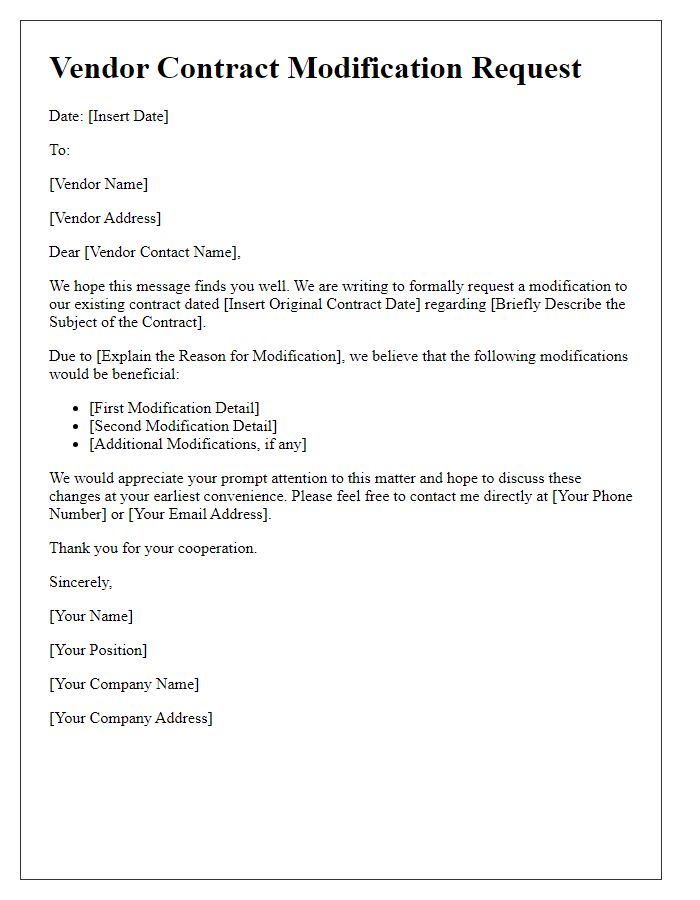
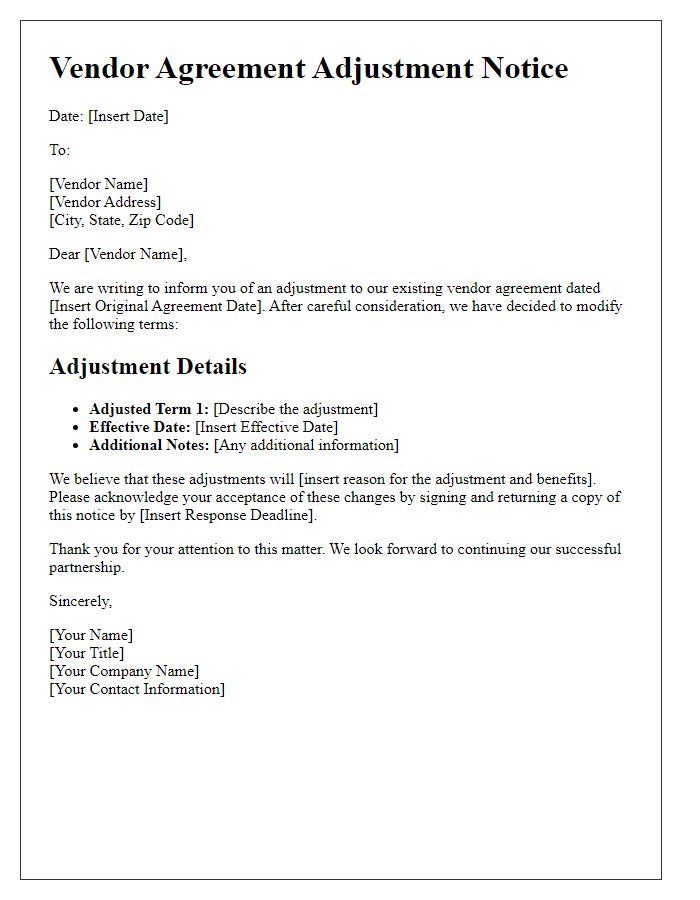
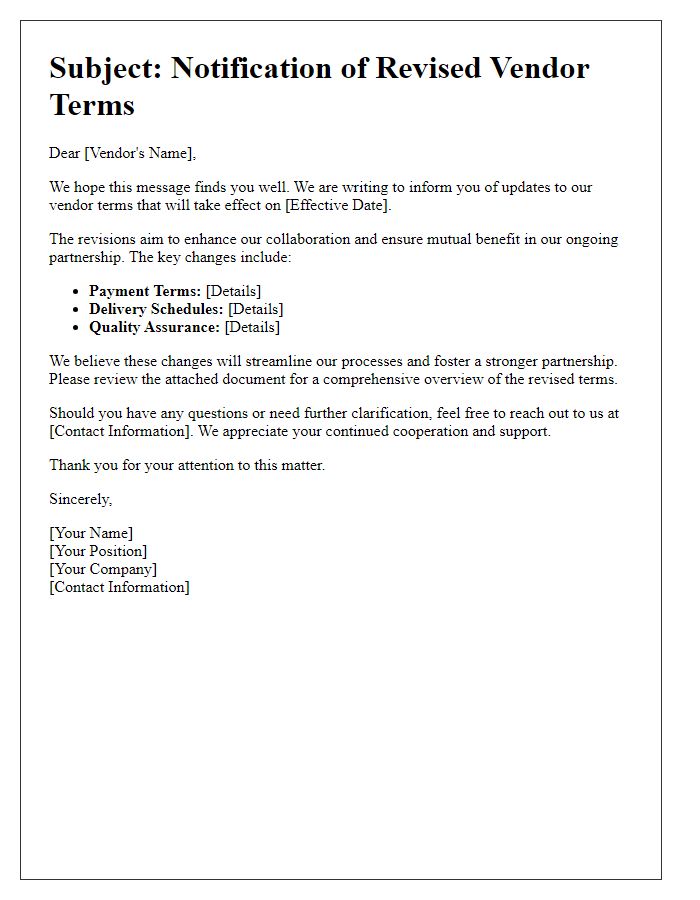
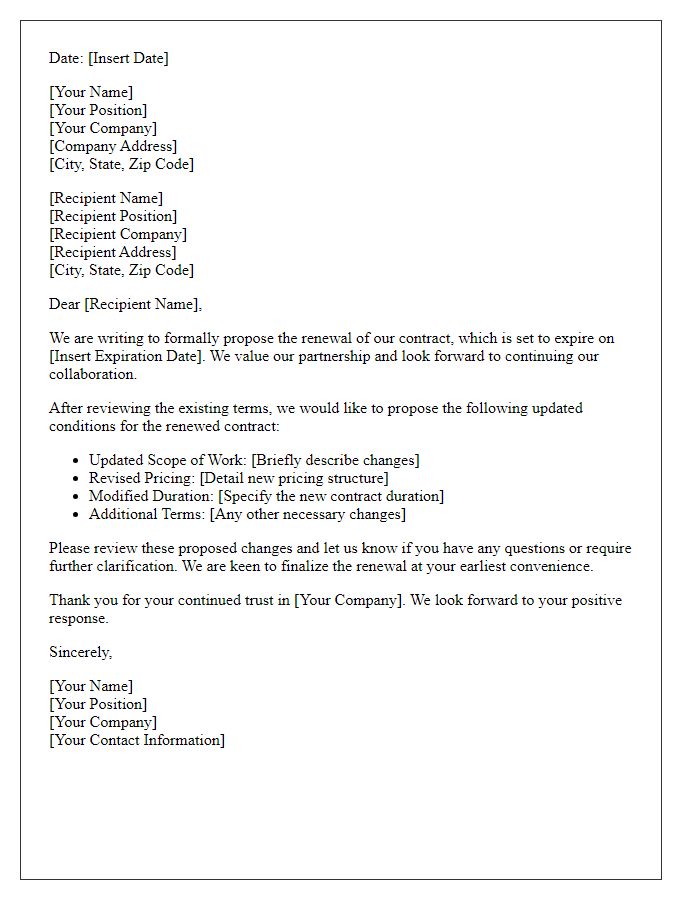
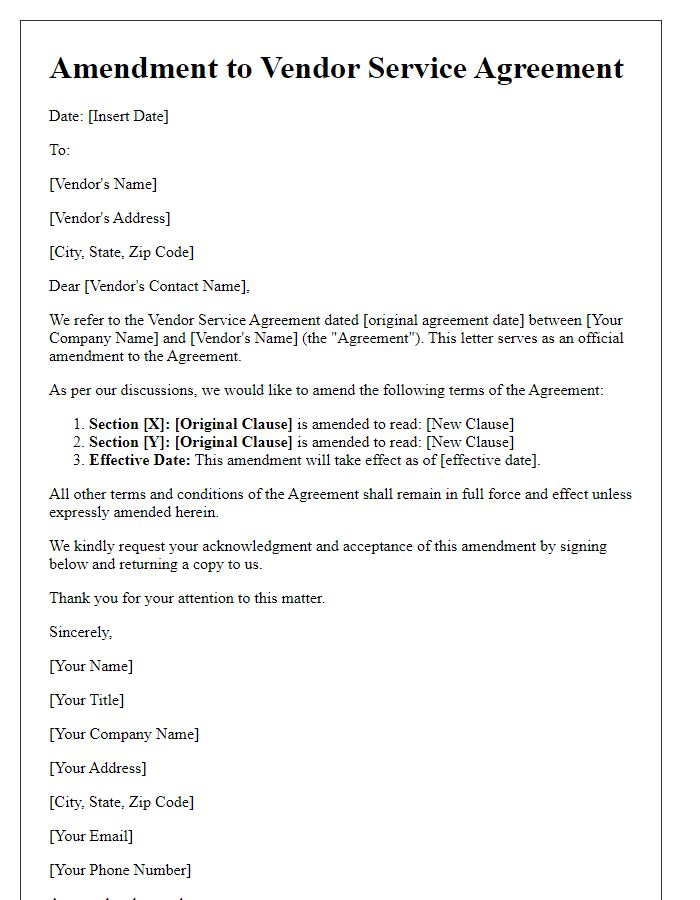
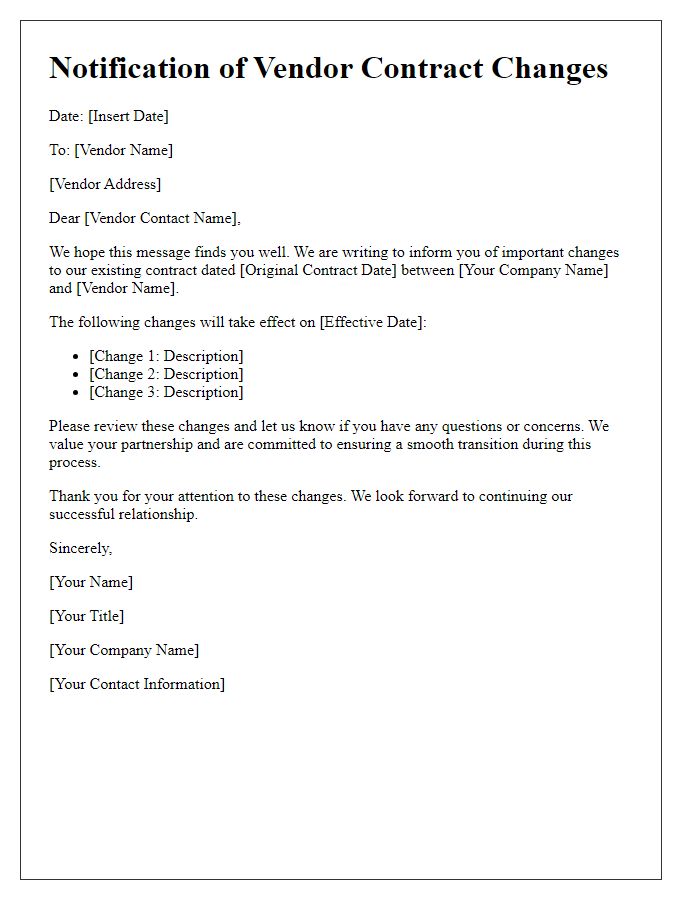
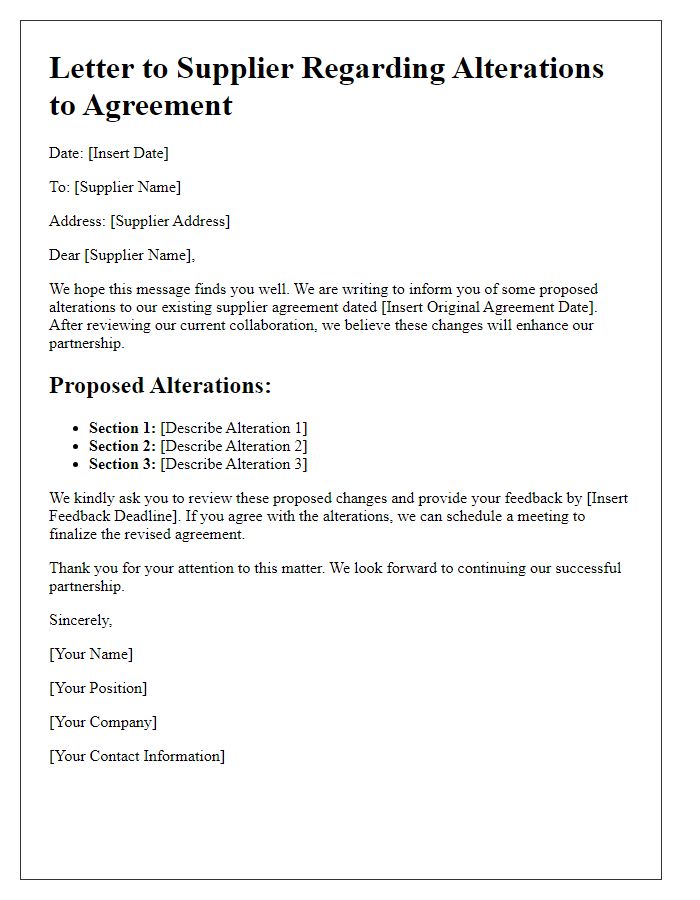
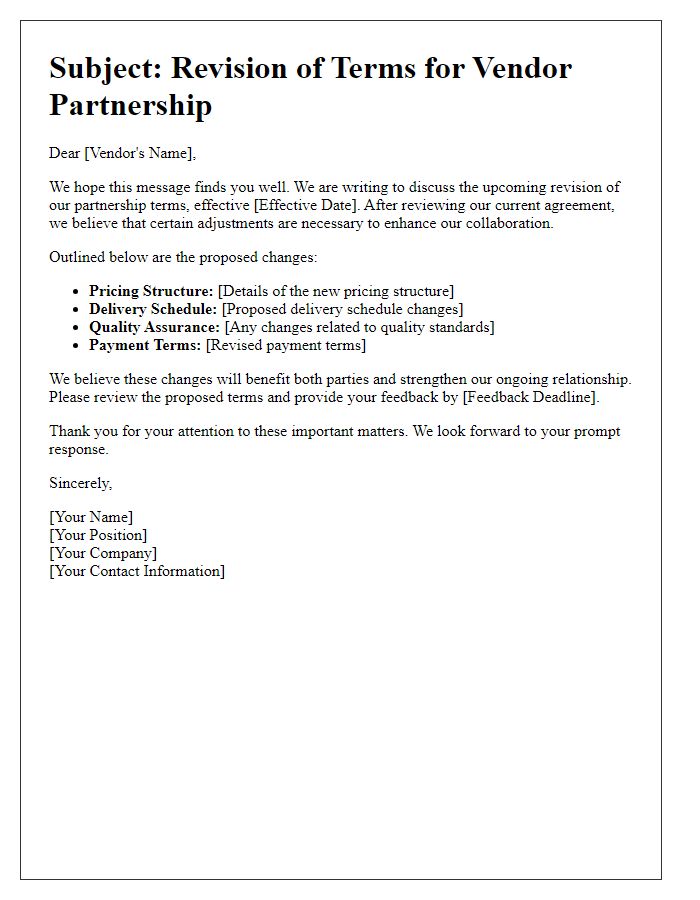
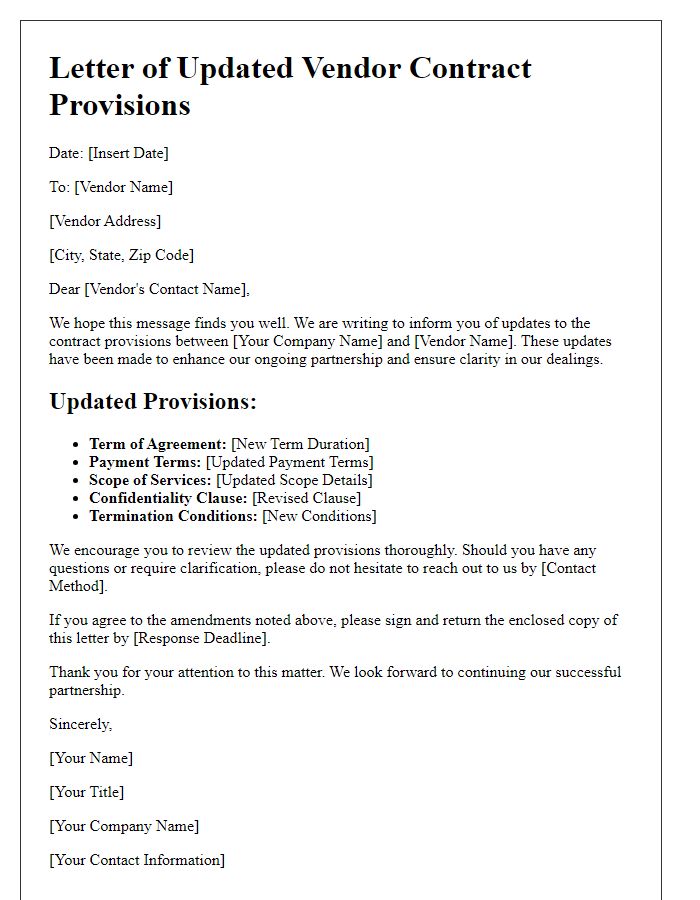
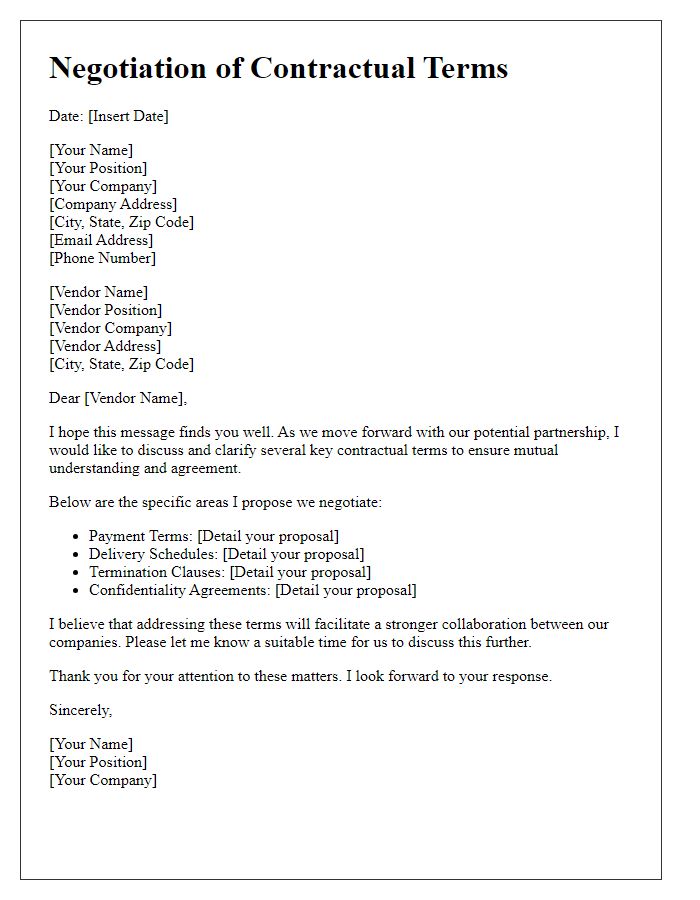

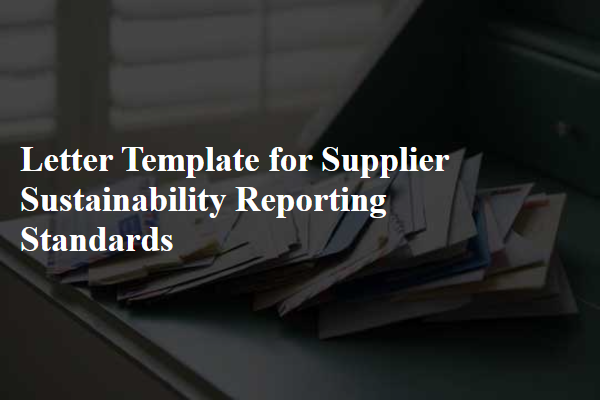
Comments